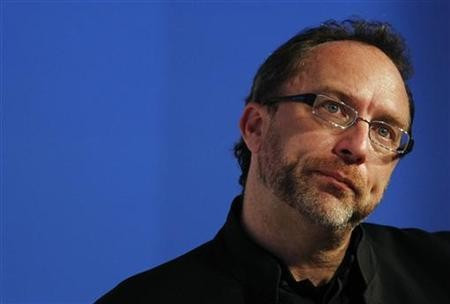Wikipedia Founder Jimmy Wales Says Cameron's UK 'Porn Filter' Won't Work

Wikipedia founder Jimmy Wales has ridiculed UK Prime Minister David Cameron's plans for internet companies to introduce a filter restricting access to online pornography, stating it "won't work".
Speaking to Channel 4 News, Wales, who was appointed government technology adviser in 2010, instead called for more resources to be channelled to police to enforce existing laws.
"It's an absolutely ridiculous idea. It won't work. The software you would use to implement this doesn't work," said Wales.
"Additionally when we use cases of a paedophile who's been addicted to child porn videos online, you realise all that Cameron's rules would require him to do is opt in and say, 'Yes, I would like porn please'."
Last week, Cameron announced that the UK's biggest internet service providers (ISPs) had agreed to ask new customers by the end of 2014 to 'opt in' if they would like access to pornography online, and would contact existing customers to ask if they would like the adult content filter.
The move arises from concern that children are able to access online pornography too easily.
Referring to recent revelations of the massive online surveillance programme by the National Security Agency in the USA, Wales said that governments should instead be devoting more time to combating a broader range of online crime. This week, it was revealed that cybercrime is now considered a greater threat to UK security than nuclear attack.
"My view is that instead of spending literally billions of pounds, billions of dollars, snooping on ordinary people and gathering up all of this data in an apparently fruitless search for terrorists, we should devote a significant proportion of that to dealing with the real criminal issues online - people stealing credit card numbers, hacking into websites and things like that.
"Unfortunately we're not seeing a lot of that. We see a lot of flash and a lot of snooping. But this is, at the end of the day, going to take an investment in real, solid police work."
As Facebook announced that it was to introduce encryption to protect the privacy of users, Wales announced that Wikipedia would follow suit.
"We trust our bank data to the same kind of encryption," he said. "There will always be questions about whether the NSA has secretly managed to decrypt everything but we think that's highly unlikely. It's non-trivial to do it well, so we have to do it right."
Wales also backed calls for Twitter to strengthen its capability for users to reports online abuse, after trolls posted rape, death and bomb threats to female politicians, campaigners and journalists on the social networking site.
He said: "When you think about rules about verbal threats, human society has a long history of rules and laws around this, and those rules and laws are very well thought-out. They deal with complicated cases.
"I do think that Twitter has needed in the past to do more to give people more control of the environment, to allow faster means for people to complain and to have people behaving badly exposed, blocked or arrested as necessary.
"But it is not like we don't have a law against threatening people. We do, and people are quite rightly being called up on this."
© Copyright IBTimes 2025. All rights reserved.






















